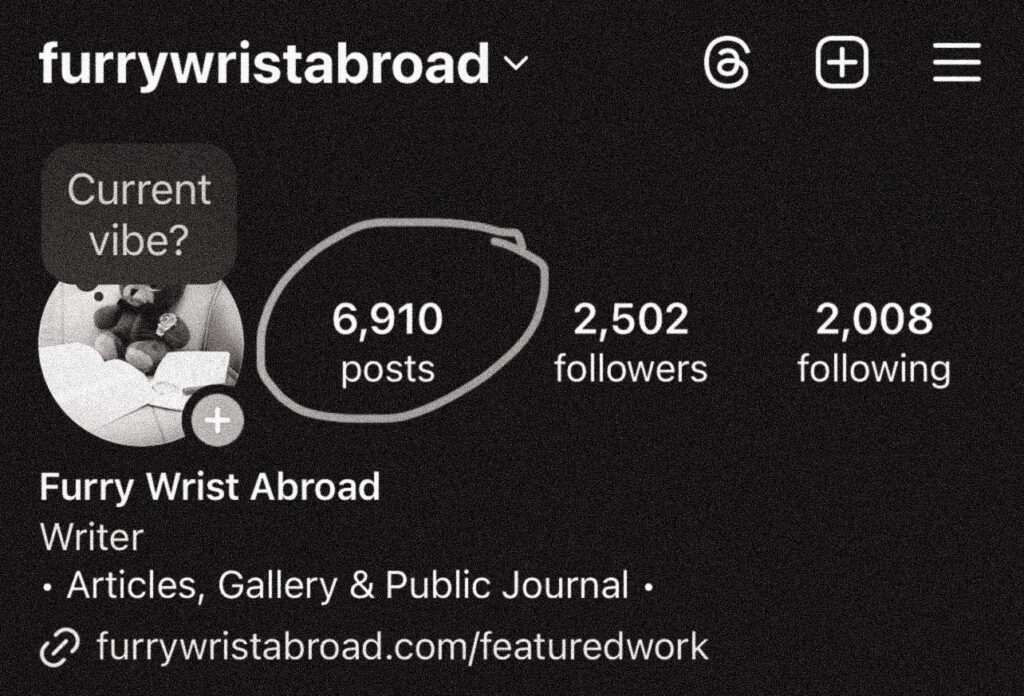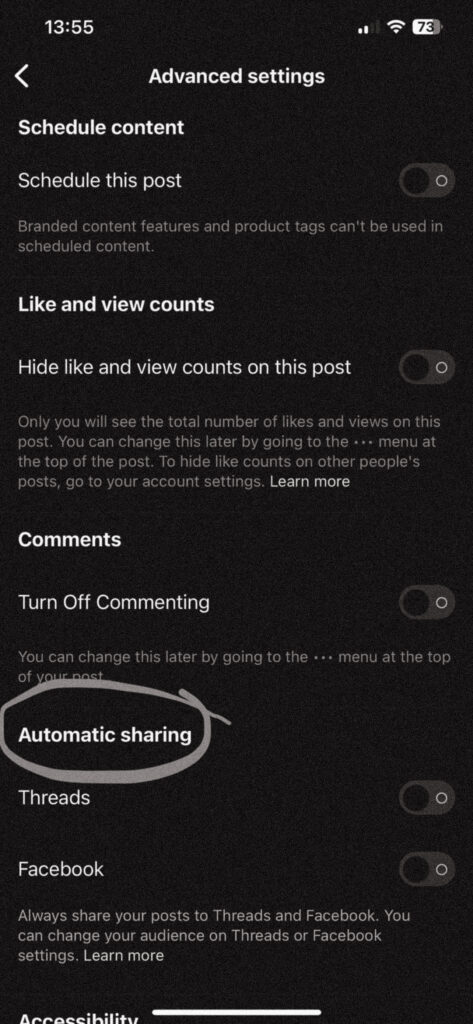679 words
Months ago, it was faint, but it was never less there, and it was being drowned out. I felt a slight pit in my stomach as I started seeing the same posts and content being put online on social media platforms by normal people—those who were not promoting a business or their craft. This slight pit in my stomach remained there, for there were and are other larger pits causing genuine damage elsewhere until today.

To kick off the article, let’s view how much I have contributed to this space and the minuscule yet significant impact when extrapolated for the entire user base. Yeesh, almost 7000 posts.
My initial feeling of slight disgust was the lack of awareness that people had about their actions online had on the environment. Those of you who bother to keep up with matters across all fields know about the costs and environmental impacts of data centres and servers. This topic was highlighted recently when it came to light of the unknown impact of multiple and very powerful artificial intelligence models running globally, which require large data centres and cooling installations. Our actions as individuals, as normal citizens, do have an environmental impact, though minuscule in scale, when compared to the aforementioned large demands set upon complex data centres from AI programs.
All servers cost money and have an environmental impact, so when you make multiple repetitive posts about the cute outfit you wore on all of Meta’s platforms, you and millions of others are increasing Meta’s carbon footprint. Keep in mind that all data stored on the cloud has a continual impact on the environment and is not free of consequence. The environmental impact of posting things online or even storing data online is invisible to those who do not work in the tech sector, and this is excusable due to the growing number of matters that we have to be concerned about that have a direct and visible impact on our lives.

One of the many ways Meta platforms encourage its users to post the same content multiple times across their platforms.
Today, however, after reading an article in the Financial Times 1 about how Google and Meta had conspired against their own guidelines and those purported to the public about targeting teenagers, this pit grew. Meta offers the option to post the same content to all of their platforms to simultaneously grow all of their platforms. This is especially true of their newest platform, Threads. Initially released as a competitor to Twitter (now X), most normal people do not know what to make of it or how to use it. Instead, they post the same content or are trying new things without actually conveying anything new.
It is a moot point to try to get people to stop using these platforms for various reasons, such as most having no other options for the collective action problem. Meta is essentially targeting our children while irresponsibly encouraging its users to incur damage to the environment. Over the last year, I have posted a lot less on Instagram and only commented when I had something genuine to contribute, for I was aware of the real costs of doing so – these actions are not free. But, in light of their other practices I am left uncomfortable enough that I am shelving a paid promotion for an upcoming article of mine. And this genuinely sucks.
The article is about caregiving for those who are most vulnerable in our lives, and the eleven-page article includes information that will relieve many people from anxiety and unnecessary suffering. And, of course, I am in the group of citizens which has no other way of promoting such an article other than paying Meta for a greater reach (of which my previous experiments had shown undesirable results). My actions and decisions will make absolutely no difference in the matter of Meta changing its tactics and will only result in fewer people being informed on such an important topic.

Besides posting work on these platforms, I and others have taken to keeping our work to ourselves or directing it to our targeted readers and audience through other methods—newsletters, email lists, printed photographs, etc.
The question becomes, what is an acceptable price for our unquestionable support of these platforms? If you are showing snapshots of your day or most recent outfit versus genuinely trying to make the lives of others better, I am starting to draw a line in the sand on the topic, and I am not sure where its borders will lay in the near future.
- “Google and Meta struck secret ads deal to target teenagers – Campaigning on YouTube to boost Instagram’s appeal to young people skirted search group’s rules of marketing to under-18s”, by Stephen Morris, Hannah Murphy, and Hanah McCarthy, 08/08/24, The Financial Times
Time of writing: August 8th, 2024